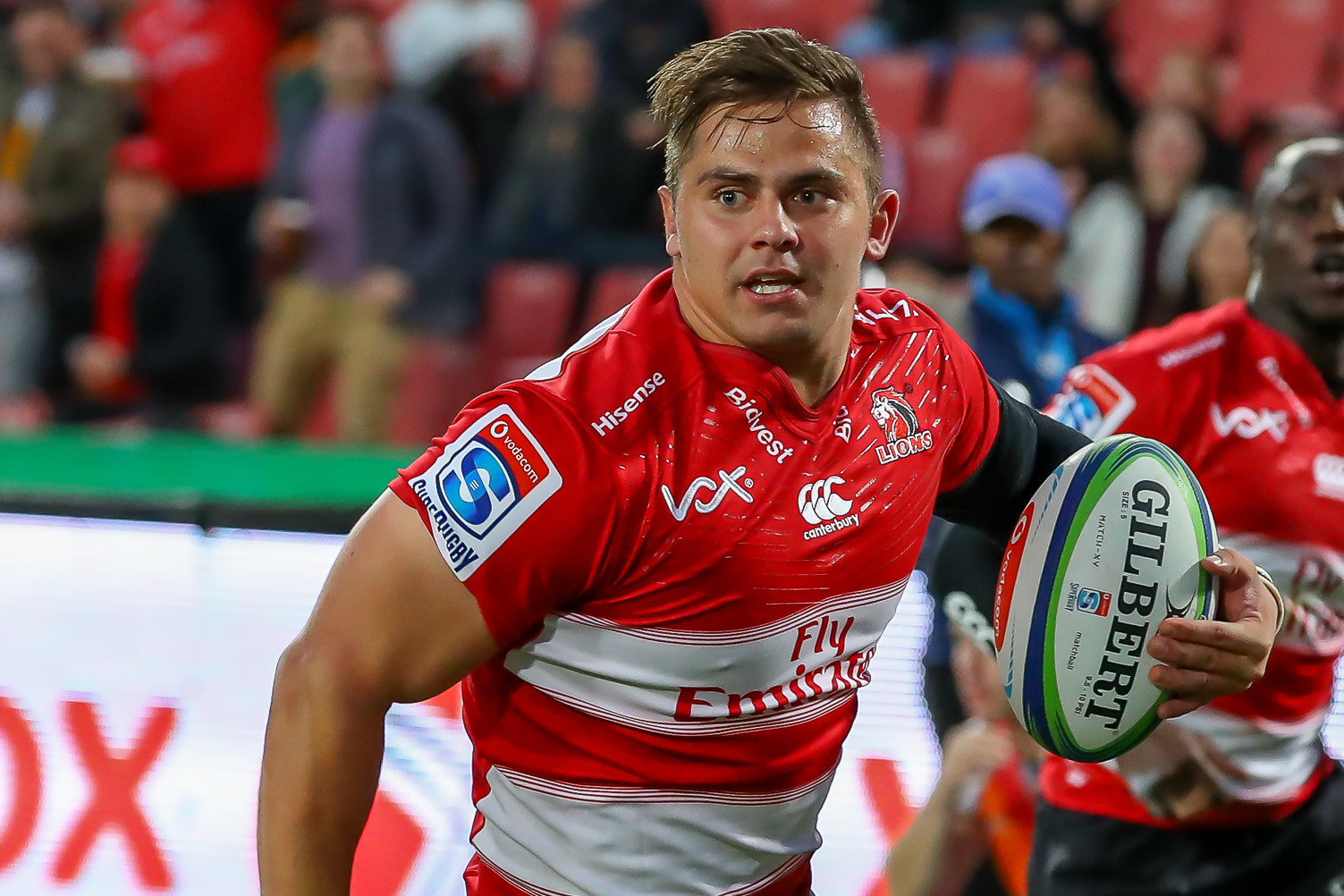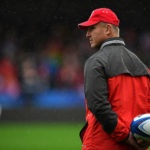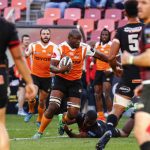Rohan’s remarkable resilience
Springbok centre Rohan Janse van Rensburg remains resolute he’ll regain his previous form, and his spot in the national team, despite his recent woes on and off the field.
Author:
4 January 2019

For most 24-year-old athletes plying their trade in a foreign country, away from the comforts of familiar faces, food and weather, spending months in an orthopaedic moonboot after breaking your leg would be enough to drive you to depression.
But Rohan Janse van Rensburg is not like most 24-year-old athletes. Despite breaking his fibula and all the challenges he has faced, he, remarkably, remains upbeat.
“It’s frustrating,” said the former Lions centre who sustained the injury while on duty for his new side, English outfit Sale Sharks. A prop from Irish side Connacht fell on Van Rensburg, who said, “but considering what I’ve overcome, this really isn’t the worst thing in the world.”
Related article:
In 2016, under the tutelage of Johan Ackermann, Van Rensburg tore apart Super Rugby defences as a central figure in a dynamic Lions’ back line. With enormous thighs and a hand-off powerful enough to jumpstart a bus, the then 22-year-old dotted down 10 times (second only to Israel Folau’s tally of 11) as the Johannesburg franchise made it all the way to the final, which they lost to Beauden Barrett’s Hurricanes in Wellington.
An inevitable Bok call-up followed. Though he would be on the wrong end of a 27-13 loss to Wales at the Millennium Stadium, there was little doubt Van Rensburg would kick on in green and gold.
Serial traumas
But the highs of 2016 were contrasted by the lows that were to come. In March 2017, Van Rensburg’s mother, Renthia, died of cancer. A knee injury a month later put him out of the game for 12 weeks, and a month after that, armed robbers broke into his home, threatened to rape his girlfriend, pointed a gun to his head and deliberated on whether or not to shoot him.
“It all came so quickly, and after the robbery I went into a dark space,” Van Rensburg said. “I’d managed to come back from setbacks before. After my mom passed away, I came back and scored two tries against the Waratahs [in a 55-36 win at Ellis Park], and I’d been able to come back from injuries in the past. But coming so close to losing my life and the shock of what happened was awful. I was also injured, so I didn’t have the opportunity to get my mind off it. It was really tough.”
Related article:
Compounding matters was the imminent departure of his mentor, Ackermann, who shocked Lions players by leaving the union a year earlier than anticipated to become the new head coach of English side Gloucester.
“Coach Johan made me a better person, not just a better rugby player,” Van Rensburg said. “He’s one of the best people I know, and he invests time in you as a human being. It’s not a coincidence I played some of my best rugby under him. It was a big knock when he left.”
Neglect, then new horizons
With his mentor gone and the threat of injury hanging over his head, Van Rensburg found himself occupying the bench or shifted to the wing under the new coach, Swys de Bruin.
“I didn’t really know why I was shifted to wing, but I didn’t want to cause a scene,” he said. “I wished I was told what the reason was. Anyone would feel frustrated by not playing in his preferred position. I don’t think I was treated right. It wasn’t just the position thing. It was also all the things that had happened to me. I think the Lions could have helped me more through a difficult time.”
A lack of consistent game time and another injury – this time his ankle – meant the bulldozing midfielder dropped down the Boks’ pecking order. Both Bok coaches Allister Coetzee and Rassie Erasmus had four other centres ahead of him. The promise of a long hold on the national No. 12 jersey was now rapidly receding.
Related article:
“I started feeling sorry for myself,” Van Rensburg admitted. “I needed to get away and make a change in my life.”
That change came from a contract in the UK. Having already spent a successful loan spell in Manchester at the end of 2017, Van Rensburg chose the Sale Sharks over Gloucester, despite Ackermann entering into a tug of war for his signature.
“The players at Sale are just so impressive, and we have the potential here to play outstanding rugby,” Van Rensburg said of his new club, which includes Springbok scrum half Faf de Klerk, Wallaby playmaker James O’Connor and English try machine Chris Ashton. “I really feel this is the best place for me to develop my game.”
World’s most competitive league
It’s not just his teammates that made the move to the UK so attractive. Despite their abundance of talent, which also includes Sharks fly half Robert du Preez who is on a three-month loan deal, Sale have started the Gallagher Premiership on a terrible note with five losses from their first nine matches.
“I challenge any rugby player or fan to find a more competitive league in the world,” Van Rensburg said. “There are no easy matches, and you have to be on it every week. If you want to be the best, you have to challenge yourself against the best as much as possible, and I have that opportunity here.”
Related article:
Once fit, the centre said he wanted to be the league’s top try scorer, and has given himself a target of averaging 120m gained with ball in hand per game. He’s also working on his kicking game, and is developing his admittedly limited distribution skills. “I don’t want to be seen as just a battering ram,” he said. “I’m improving all the time. I have not given up on my Springbok ambitions. I haven’t given up on going to the World Cup.”
This year’s showpiece in Japan might come too soon for Van Rensburg, but who can say where the limits of this young man’s potential lie? He has come back from hardships most of us will never experience. “Those events have really helped put things into perspective,” Van Rensburg said.
“The way I see it, everything that has happened to me has happened for me. I’m a better person because of all these experiences, and that makes me a better rugby player. I feel I have a presence on and off the field that carries me forward. Whenever I get down because of an injury or because I’m homesick, I remind myself of everything I’ve had to overcome. If I could get through that, this really isn’t so bad.”




